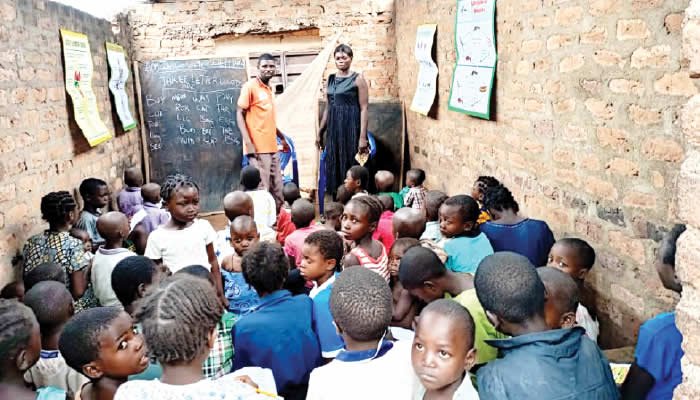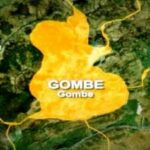
JOHN CHARLES writes that many people in Benue State have become permanent residents of the internally displaced persons’ camps following activities of herdsmen, who raid their communities and take over their lands
THE climate of Nigeria is characterised by two seasons: wet or rainy and dry season. Experts note that wet season is normally from April to October while the dry season is from November to March.
Every year as many await dry season and welcome it with nostalgia, it is always a period of agony, unease and period many people in Benue, particularly, the rural dwellers would have preferred it goes into extinction. Reason: This is the period the pastoralists always move southward with their cows looking for where there are fertile spots.
Benue is one of the spots located in the middle belt region of the country with grass the herdsmen claim to be good nutrition for their cows while the people of the state are predominantly subsistent farmers.
Since the farmers too need water for their crops, this has always created conflicts between herders and farmers, especially when cows stray into farmland and destroy crops. Before now the two groups were said to have developed mechanism to manage some of these teething crises until recently, particularly, 2013 when it assumed violent clashes.
For instance in the Moon ward of the Kwande Local Government, the President general of Mdzough U Tiv, Iorbee Ihagh, retired Commissioner of Prison said that the whole council ward had long been deserted and all infrastructure including schools and hospitals destroyed.
Just last Tuesday, a community leader in the Logo Local government Area of the state, Joseph Anawah raised the alarm about the influx of herdsmen into the four council wards namely; Yonov, Tomboe, Turan and Nenzev where indigenes had fled their villages for fear of possible attack.
Anawah, a former media aide to erstwhile governor of the state, Gabriel Suswam said that the invasion of the herdsmen with over 1,000 cows was posing a threat to neighbouring communities in Buruku and Guma local government areas.
Unfortunately, the Guma Local Government Area, which happens to be one of the areas threatened by the invasion of the herders, has all along been the worst hit by herdsmen attacks since 2013.
Since the beginning of the current dry season, no fewer than 18 people have been killed in about eleven attacks in this local government alone, the latest was the killing of three people, including a woman. They were returning from burial last Saturday.
On Thursday, February 17, a community in the Gwer West Local Government Area; Tse Udeghe in Mabapa council ward, was attacked and four people were reportedly killed and several thatched houses burnt down.
The Chairman of the LGA, Mrs Grace Igbabon also said that some suspected herders also blocked the federal highway along Naka/Makurdi and shot at ongoing vehicle which caused the death of a young lady.
Few days before the incident, suspected herdsmen had ambushed one Christopher Inalegwu, an elder brother of the State Commissioner for Information, Culture and Tourism, Michael Inalegwu in his farm in the Agatu Local Government area of the state and shot him dead.
The suspected herdsmen, who had invaded four council wards in the Logo Local Government Area of former governor of the state, Senator Gabriel Suswam, according to Anawah were so daring and warned that they would not take it lightly if the government or security men tried to evict them, meaning they were ready to settle down in the communities.
With the recent attacks, there is no doubt that the humanitarian crisis in the state is becoming alarming with its attendance of out of school children.
The Executive Secretary of Benue State Emergency and Maintenance Agency, Dr Emmanuel Shior a few weeks ago raised the alarm of increase in the out-of-school children in the state occasioned by herdsmen attacks.
According to him, only 20 percent of children of displaced persons in the state are in school, invariably the rest 80 percent are out of school.
As of September, 2021, a total of 458, 992 children of between ages of six and 17 years who are supposed to be in school were displaced.
The Majority of the children were either living in internally displaced persons camps or staying with host community. Invariably, 20 per cent of this figure (which means about 91,800) are children that could attend the emergency schools built by state government.
The 80 per cent which represents about 367,192 children, who could not access schools due to destruction of their schools or their displacement from their ancestral homes, are left to roam the streets, many of them engage in menial jobs and some others may likely graduate to monster and terrorise the society.
According to the data, Guma, governor Ortom’s council area, has the highest figure of 113,686 children of school age who are displaced meaning that approximately 22,539 of this figure could attend the emergency schools built in the camps while about 91,147 children from the council area are out of school.
Our correspondent, who visited Abegana camp located along Makurdi/Laafia highway report that only little children could attend the emergency school built for them while grown up children who ought to be in secondary schools have opted out of school and taken up menial jobs to assist themselves.
Many of these young lads, according to a 45-year-old inmate at Tse Yandev camp, Makurdi who simply identified himself as Tony, left the camp to cities like Jos, Abuja, Laafia in search of greener pastures.
“If you have come here let’s say a year ago you would have seen many of the younger ones who ought to be in secondary schools but due to the displacement could not go back to school have decided to leave the camp.
“Few of them have gone to South-West to do farming. Many left for cities like Abuja, Jos and nearby Laafia in search of job instead of remaining in the camp and die in silence. Most of them are between 14 and 18 years. In normal circumstances they are supposed to be in school,” Tony said.
The story of an eleven- year-old girl, who simply identified herself as Mimido, looks pathetic. She explained that she left school in 2019 during one of the herdsmen attacks and her family took refuge at Abegana IDP camp.
“We have been in this camp (Abegana camp) since 2019 and I was in primary five at the time herdsmen invaded our village at Yogbo and sacked the whole community.
“Since we came to this place, I have not gone to school. I visit people within the village here and help them do menial job like cleaning the house or washing clothes and get up to N600 in a day and on a good day I can make up to N1,000. At least, it is better than staying idle.
It is the same story for a young lad of 15-year- old, Terna who now takes refuge at Tse Yandev camp located along Joseph Sarwuan Tarka University of Agriculture road.
Fulfilling his dream to become a lawyer seems to have hit the rock following his inability to further his education.
“We came from Yelwata after herdsmen attack on our community about two years ago. At that time, I was in primary five and I am supposed to be in either JSS one or two now if not for the Fulani invasion that disrupted our academic session.
“My dream was to become a lawyer because I love the profession but the hope is already dashed. What I do now is to go round neighbourhood at federal housing estate here to engage in menial jobs to assist my mom because I have lost my dad.,” Terna lamented.
Copyright PUNCH.
All rights reserved. This material, and other digital content on this website, may not be reproduced, published, broadcast, rewritten or redistributed in whole or in part without prior express written permission from PUNCH.
Contact: [email protected]





